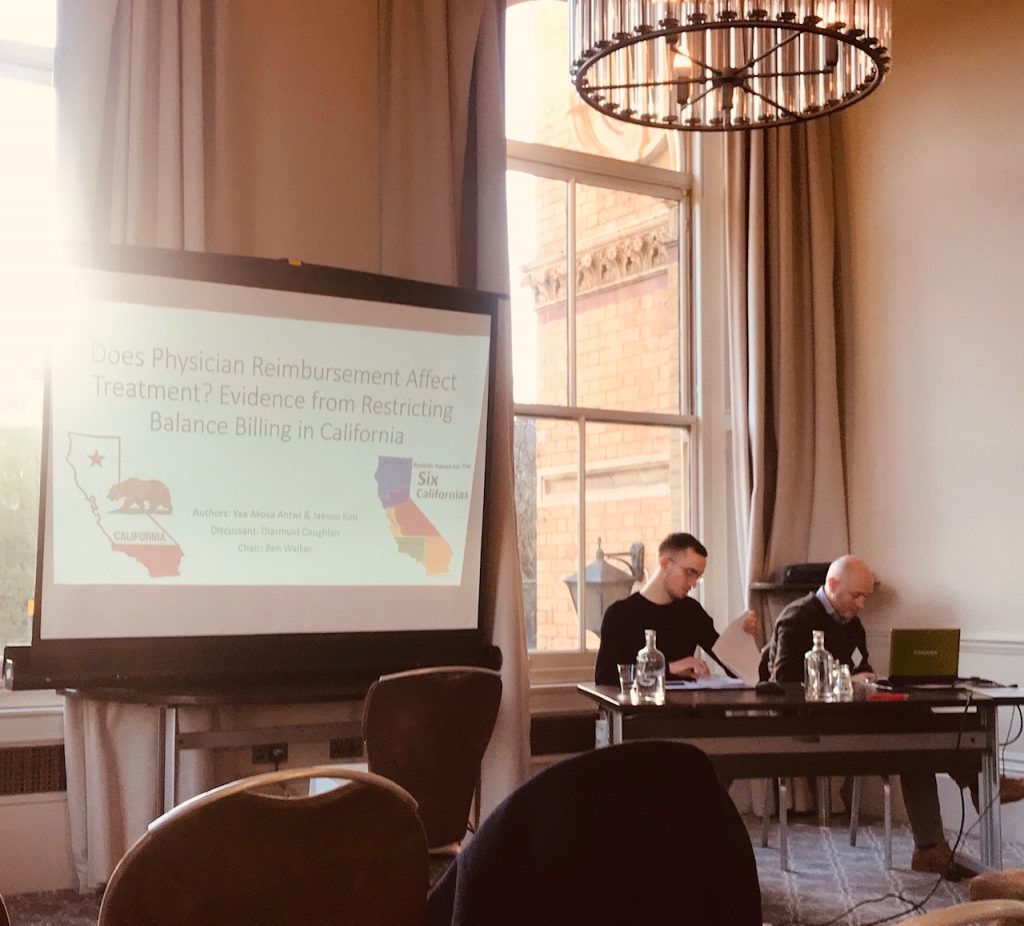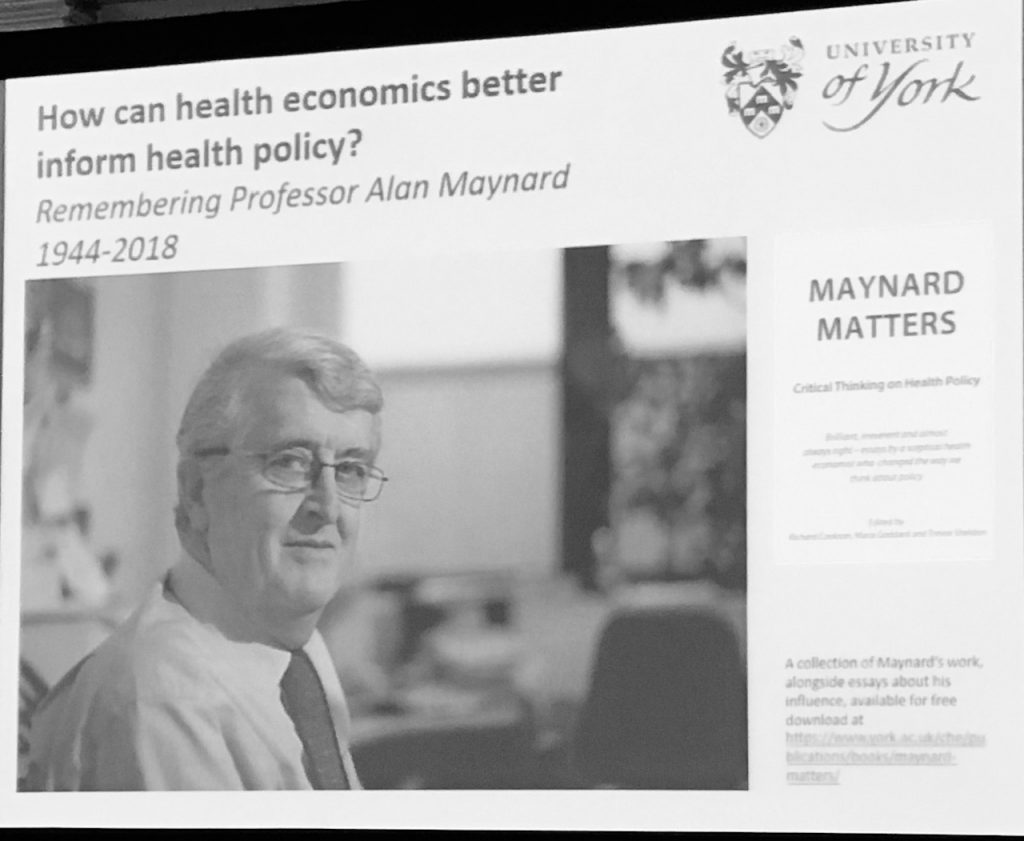by Ben Walker
This January I experienced my first academic conference, the Health Economics Study Group (HESG) which took place at the Principal Hotel in York from the 7th-9th of January.
HESG has an interesting format; it primarily focuses on working papers rather than finalised pieces of research. Papers accepted to the conference are not presented by the authors but are instead discussed in hour long sessions by a volunteer, who spends approximately 30 minutes giving an overview of the paper, along with some constructive criticism. Following the discussant’s presentation this the floor is opened up for questions and discussion. I both acted as a chair and discussant at the conference.
The paper I chaired was an excellent econometrics based policy evaluation titled ‘Does Physician Reimbursement Affect Treatment? Evidence from Restricting Balance Billing in California’. The primary author of this paper was Yaa Akosa Antwi from John Hopkins University. The paper was discussed superbly by a colleague of mine here at IHS; Diarmuid Coughlan. For those with an interest in the US healthcare system this paper is worth a read once it comes out.

The paper I discussed was titled ‘Time to revisit the agency theory and expand our thoughts on what motivates physicians? A nudge to health economists’, the primary author of the paper was Anne Sophie Oxholm based at the University of South Denmark. The paper suggests that the physician’s (the agent’s) utility function in the standard principal-agent model should be expanded from having two components; physician income, and patient (principal) benefits, which are both functions of physician effort, to four components. The additional two components would be intrinsic motivation (self-satisfaction from performing your job), and public service motivation (benefits for society at large, not just the patient). I enjoyed the paper; and I respect the authors for taking on a large and challenging topic, with the principal-agent model being a frequently used framework in Health Economics.
I volunteered to discuss this paper as I thought it would be good experience and practice, and thankfully it was; I really enjoyed the experience, the authors seemed very receptive and appreciative of my comments, as well as of comments put forward by others in the room.
It would be remiss not to mention the special plenary session in memorial of Professor Alan Maynard OBE that was held the first evening. Hearing stories of his professional and personal life from close friends and colleagues was both inspirational and thoroughly entertaining; the session highlighted what an extraordinary life he led and the important work he did as one of the giants of health economics.

My first HESG experience was a good one. Aside from York being a great city, a lot of interesting papers were discussed (I particularly liked the methodology in ‘New(spaper) evidence on the relationship between business cycles and suicide’ by Günnel and Kronenberg), and it was nice to talk to health economists from around the world and see what they were working on. The venue also added positively to the experience; the staff were friendly and attentive, the rooms were generous and comfortable, and the food was nice. Full credit to York for putting on a great conference!
This HESG meeting also provided an opportunity for those in the health economics group at Newcastle to gather ideas for when we host it. Newcastle will be hosting the next Winter HESG in January 2020 and certainly have big shoes to fill after this year’s in York! We look forward to welcoming conference attendees to our wonderful city next year.

